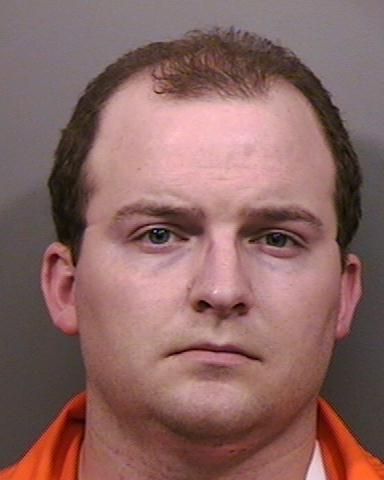
Students gather to call action for area’s marshes
August 26, 2014
Randolph wins appeal, fine lifted
August 26, 2014Three psychiatric experts have concluded that condemned ex-deputy Chad Roy Louviere was mentally ill and did not know right from wrong when he held employees of a Houma bank hostage in 1996, shooting one to death during a 25-hour siege.
Louviere’s purported mental conditions, reports from expert witnesses conclude, were exacerbated by heavy intake of ephedrine – a substance now banned from energy drinks – caffeine and lack of sleep.
Their opinions were aired during three days of hearings last week before District Judge Johnny Walker, who must decide if Louviere, who has languished on Louisiana’s death row since his sentence was imposed, is entitled to a trial determining guilt or innocence, which he never received.
Louviere waived his right to a jury trial after being charged with 1st degree murder in connection with the shooting death of bank teller Pamela Duplantis.
His attorney at the time then threw Louviere’s fate to the mercy of a jury charged with one task, to determine whether he should live or die. His guilty plea was entered in 1998. A jury recommended death after hearings in 1999. He was formally sentenced to die on Feb. 24, 2000.
In court papers under review by Walker, Louviere’s current attorneys say that amounted to ineffective assistance of counsel, meaning Louviere did not receive a proper defense.
“It is my professional opinion, which I hold to a reasonable degree of neuropsychiatric certainty that Mr. Louviere was suffering from multiple neuropsychiatric disorders or diseases, and neurologic defects at the time of the shooting of Pamela Duplantis,” states the 26-page report of George Woods, MD, who reached his forensic conclusion following interviews with and examination of Louviere, reviews of medical records and of his social history. “These disorders, individually and collectively, rendered him unable to distinguish between right and wrong with reference to the offense for which he was charged and convicted.”
Under federal law Louviere has the right to seek a new trial, if he can prove that any element of his defense not presented could have swayed even one juror when his case was first heard. In this case part of the argument is that Louviere was never advised by David Stone, his attorney at the time, that he could or should seek an insanity defense prior to pleading guilty.
After Judge Edward J. Gaidry formally imposed Louviere’s sentence of death by lethal injection, Louviere sought to change the plea but Gaidry did not allow it.
Prosecutors have not presented their own experts on the specific matter of Louviere’s alleged conditions, although they did question doctors as to his ability to know right from wrong, a key element of Louisiana’s laws regarding criminal culpability.
The U.S. Supreme Court has ruled that a defendant is free to reject an insanity defense presented by his attorneys, if he is competent to stand trial. But Louviere’s attorneys have stressed that his competency was never questioned, and that no hearing to determine if he was competent was requested by Stone.
Duke University neuropharmacologist Wilkie Wilson, who has worked extensively on the effect various substances have on the brain and on behavior, gave a detailed analysis of Louviere’s alleged ephedrine use. He consumed, according to the report, mass quantities of a dietary supplement called Ripped Fuel. In addition, he also consumed large quantities of Mountain Dew, which contains caffeine.
“Mr. Louviere reports that he took Ripped Fuel and Vanadyl (another substance) up to several times a day, usually first thing in the morning and then as needed whenever he wanted an energy boost,” Wilson said. “For someone with an underlying mood disorder or other disorders, taking a mix of ephedra and caffeine even at the recommended dosage can be like adding gas onto a fire.”
Wilson presented medical journal articles citing case histories of people with mental illnesses who mixed ephedrine with caffeine.
“Chad Louviere’s behavior and symptoms on the day of the crime reflect the risk inherent in that combination, and are consistent with someone who was using ephedra and caffeine.”
The FDA, Wilson reported, banned ephedra from supplements in 2004, eight years after the bank siege.
The report of Dr. Robert Shaffer, a clinical psychologist, noted the presence of neurological abnormalities including presence of a potential lesion on the brain. In addition, Shaffer wrote, control of certain acts including those involving sex and aggression are known to occur in people who, like Louviere, have been traumatized by childhood sexual abuse.
Louviere, court papers say, suffered long-term sexual abuse at the hands of a youth minister, the late Harry Wren. Wren also allegedly victimized other boys.
Among the diagnoses offered by Shaffer are mild neurocognitive disorder related to brain abnormality and a seizure spectrum disorder. Post-traumatic stress disorder, bipolar disorder ad manic mood episode were also cited.
An electroencephalogram and other brain tests performed at Ochsner Medical Center in New Orleans shows organic brain damage in the right temporal region, according to Siddhartha Nadkarni MD, of the New York University School of Medicine.
The right temporal lobe, according to the doctors, can affect behavior.
Psychiatrist Dorothy Otnow Lewi, who examined Louviere prior to his guilty plea, testified that she was surprised by word of Louviere’s guilty plea, particularly since she had been in communication with Stone regarding his mental state.
Among documents taken into evidence by Walker was a Dec. 10, 1998 letter which included building blocks for an insanity defense on which she Lewis was working.
Louviere entered his guilty plea 12 days after the date of that letter.
An affidavit from Lewis, backed up by her testimony, states that Louviere’s “underlying psychopathology has existed for years and has been corroborated by multiple sources.”
Lewis was led to believe that she would testify on the matter of Louviere’s sanity at a trial. Then came the revelation, her affidavit states, that there would not be a trial on the matter of guilt or innocence.
“Mr. Stone told me that he and another attorney approached Mr. Louviere and advised a guilty plea just a couple hours before the plea,” said Lewis, who was advised that her testimony would be used at Louviere’s penalty hearing in May of 1999.
“I was staggered at the news of Mr. Louviere’s guilty plea, based on my conclusions set out above,” Lewis said. “I had never before seen a more convincing case of insanity, attributable to underling psychosis and exacerbated by the unwitting ingestion of psychogenic substances.”
Prosecutors questioned Lewis while she was on the stand regarding statements she had made to the New York Times regarding the Washington, D.C. sniper case, prior to her examination of the suspect. A copy of the resulting article was included in exhibits, in what appeared an attempt to show a propensity for jumping the gun on assessment matters.
Lewis, who is affiliated with New York University and has testified in many murder cases, stated in her affidavit that she disapproved of the defense’s plea decision.
“Furthermore, based on Mr. Louviere’s psychotic, unrealistic notions regarding his defense, he was incompetent by any standards to plead guilty to the charges, much less after only a couple of hours of discussing the plea,” Lewis said. “He lacked any understanding of the severity of the charges against him or of the fact that these charges would be resolved legal proceedings and not through … bargains with local and national figures.”
Lewis stated that Stone told her she would not be testifying at Louviere’s sentencing hearing because the defense team had run out of money.
In May of 1999, Lewis stated, Stone’s secretary responded to her inquiry on the case by saying “oh, he got the death penalty.”
Hearings will continue in October at a date that has yet to be determined.













